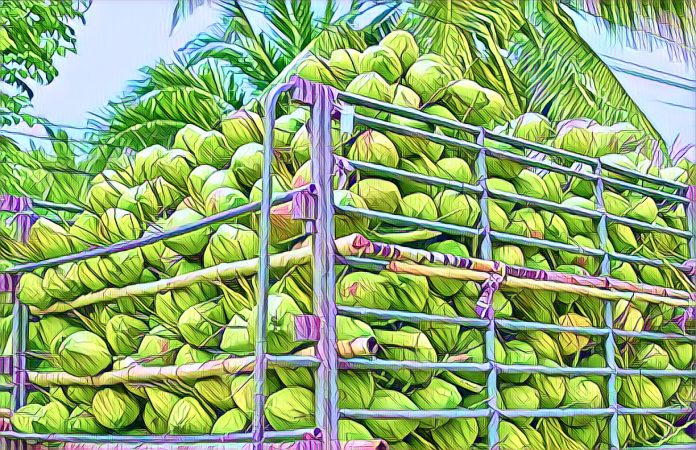In a significant development for Nigeria’s agricultural sector, Alhaji Abubakar, the Minister of Agriculture and Food Security, announced the Federal Government’s goal to nearly double the country’s coconut production by 2025. Speaking at the 10th International Coconut Festival AGUNFEST in Badagry, Lagos, Kyari outlined the ambitious target to increase production from the current 224,186 metric tonnes (MT) to 500,000 MT.
This initiative comes as Nigeria, currently 19th in global coconut production rankings, looks to bolster its position in the industry. The minister highlighted the festival’s purpose, stating, “AGUNKEFEST 2023 is not just a celebration of coconut, but a call to action.” He emphasized the collaborative effort required from farmers, researchers, entrepreneurs, and policymakers to develop the coconut sub-sector, thereby creating wealth for communities and the country.
Kyari, represented by Mrs. Abimbola Oguntuyi, Lagos State Coordinator of the ministry, emphasized the multifaceted potential of agriculture, particularly in job creation, revenue generation, and economic diversification. He stressed the need to reduce reliance on oil, expand revenue sources, and conserve foreign exchange.
Echoing these sentiments, Mrs Lola Ade-John, Minister of Tourism, highlighted the festival’s role in promoting tourism, celebrating Nigeria’s culture and traditions, and boosting the economy. Represented by Mr Tony Okonju, a Chief Tourism Officer, Ade-John projected that the coconut industry could generate over N20 billion in foreign exchange through exports. She underscored the industry’s potential to provide food, income, and employment, advocating for sustainable practices within the sector.
According to a report by The Guardian, Mr Julian Baricuatro, President of the International Coconut Festival, Canada, called on the Nigerian government to encourage coconut planting and focus on the value chain, emphasizing its nutritional and health benefits.
In Lagos, Ms Abisoye Olusanya, Commissioner for Agriculture, revealed plans to renovate Topo Island in Badagry, the first coconut plantation in West Africa. She announced collaborations with the Ministry of Tourism, Arts and Culture to boost Badagry’s appeal as a tourist destination and the establishment of a coconut factory through LASCODA.
Prince Mesi Doheto, President of the African Coconut Heritage Initiative (AFRICOCO), described the festival as a blend of culture and innovation, showcasing the cultural heritage of coconut-producing communities and the global economic significance of the crop.
The festival, which began on July 7, included various activities like arts and crafts competitions, fashion shows, and cultural performances. It culminated in a symposium, business forum, and community float parade, underscoring its role in unifying cultural tourism and promoting the coconut industry.



